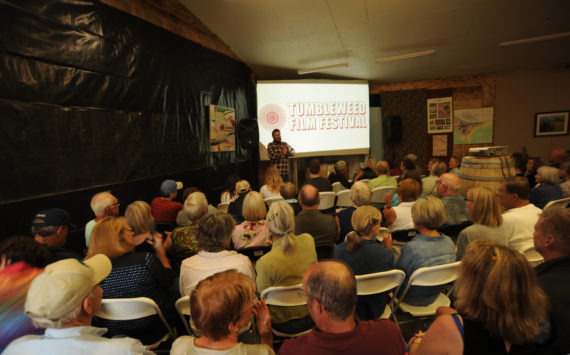Regarding Bill Slusher’s Nov. 15 letter. To start, why do I claim the question “what could I do before Bush that I cannot do now” is irrelevant. The situation is analogous to the lottery. If I win the lottery, it may well change my life. If I don’t win, it will not impact me in any way. If I am declared to be an “enemy combatant” (this only requires a simple executive branch statement based on a presumption of guilt) my life may well be destroyed. If I never run afoul of the Patriot Act, it won’t impact me at all. The same could be said of those who never ran afoul of the Gestapo in Nazi Germany. But again, what is freedom? What did our fathers and forefathers give their lives for? To defend the Patriot Act and all that it represents?
Bill complains about my lack of documentation regarding the Pratt killing. For those who want documentation for my claims, do an Internet search of “Pratt Swat Everett Inquiry.” There is too much documentation for me to present it all here.
In defending no-knock entry, Bill states no-knock requires warrants “issued by judges who have examined case by case probable cause.” While this is true in theory, the requirements for obtaining a warrant, in practice, are so flimsy that this requirement offers little, if any, protection. For verification of this claim one need look no further than Pratt. SWAT did not enter the Pratt’s home by accident they had a warrant to enter same. Solely based on information from a confidential informant, the police believed Larry Pratt was the gunman in the 1991 robbery of two Loomis Armed Guards. What other evidence connected Pratt to this robbery? None! There was no other evidence connecting Pratt to the robbery because he had no more to do with it than you or I. Dear reader, it could just as well have been your front door, as it was Pratt’s that Swat smashed down.
In commenting on no-knock laws, Supreme Court Judge Breyer stated: “— The rise of paramilitary-type police units conducting no-knock raids on American citizens is a disturbing trend in domestic law enforcement. Police excess, procedural errors and reliance on “confidential informants” of dubious character has caused hundreds of violent raids on completely innocent civilians.” Incidentally if you think Pratt is an isolated incident, do an Internet search of “innocent killed no-knock SWAT.”
Bill contends that no-knock is a necessary part of law enforcement. Nonsense. The police got along just fine without no-knock for hundreds of years. If any reader feels safer under no-knock than they did under the prior knock and identify policy, I would be interested in reading a letter from them stating the reasons why they feel safer.
Bill wants a recitation of rights that we have lost in America. Such a list, together with documentation, would require a book rather than a letter to the editor. To this end, I was going to discuss the weakening of the writ of habeas corpus, but since I’m already discussing no-knock, I am going to continue with that subject.
In the Jan. 20, 1994 case of Florida v. Bamber, the Florida Supreme Court made the following observations: “A strong presumption existed against the validity of no-knock searches in common law. — In fact, it is generally recognized that police have been required to knock and announce their authority before breaking into a home since time immemorial.”
“— William Pitt categorized a man’s home as his castle. — The poorest pioneer in his log cabin may bid defiance to the forces of the crown. — The law forbids the law enforcement officers of the state or the United States to enter before knocking at the door, giving their name and the purpose of his call. There is nothing more terrifying to the occupants than to be suddenly confronted in the privacy of their homes by a police officer decorated with guns and the insignia of his office”
Note that many of our founding fathers didn’t want to draft a Bill of Rights because they felt said document might be construed as placing a ceiling on our rights. The Bill of Rights was finally drafted with the understanding it would be a minimum guarantee of our liberties. Modern reality is that our Constitution now constitutes unattainable goals rather than minimum guarantees.
No-knock was initially instituted to provide us with protection from illegal drugs. For me, the irony here is that illegal drugs are of no personal concern at all, while law enforcement is. In fact, federal law enforcement is solidly in the number one slot of my personal concern list.
Mason Hess
Tonasket







